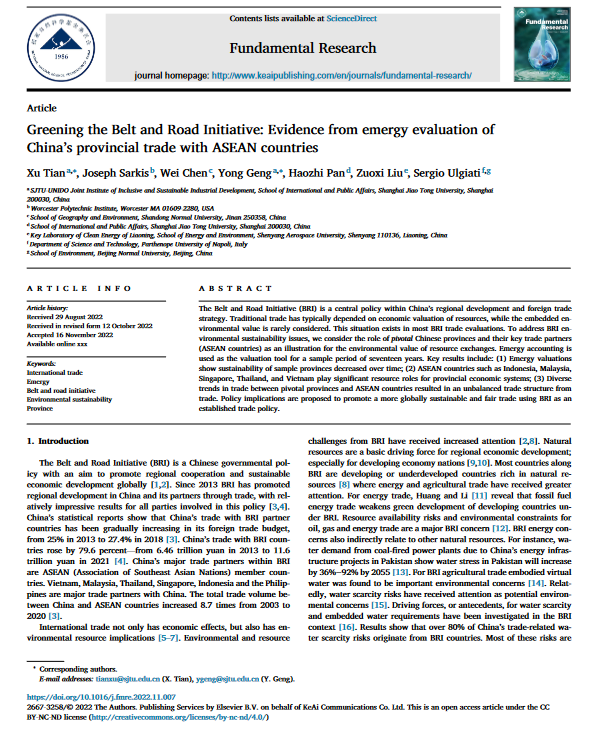Affiliation
a. SJTU-UNIDO Joint Institute of Inclusive and Sustainable Industrial Development, School of International and Public Affairs, Shanghai Jiao Tong University, Shanghai
200030, China
b. Worcester Polytechnic Institute, Worcester MA 01609-2280, USA
c. School of Geography and Environment, Shandong Normal University, Jinan 250358, China
d. School of International and Public Affairs, Shanghai Jiao Tong University, Shanghai 200030, China
e. Key Laboratory of Clean Energy of Liaoning, School of Energy and Environment, Shenyang Aerospace University, Shenyang 110136, Liaoning, China
f. Department of Science and Technology, Parthenope University of Napoli, Italy
g. School of Environment, Beijing Normal University, Beijing, China
